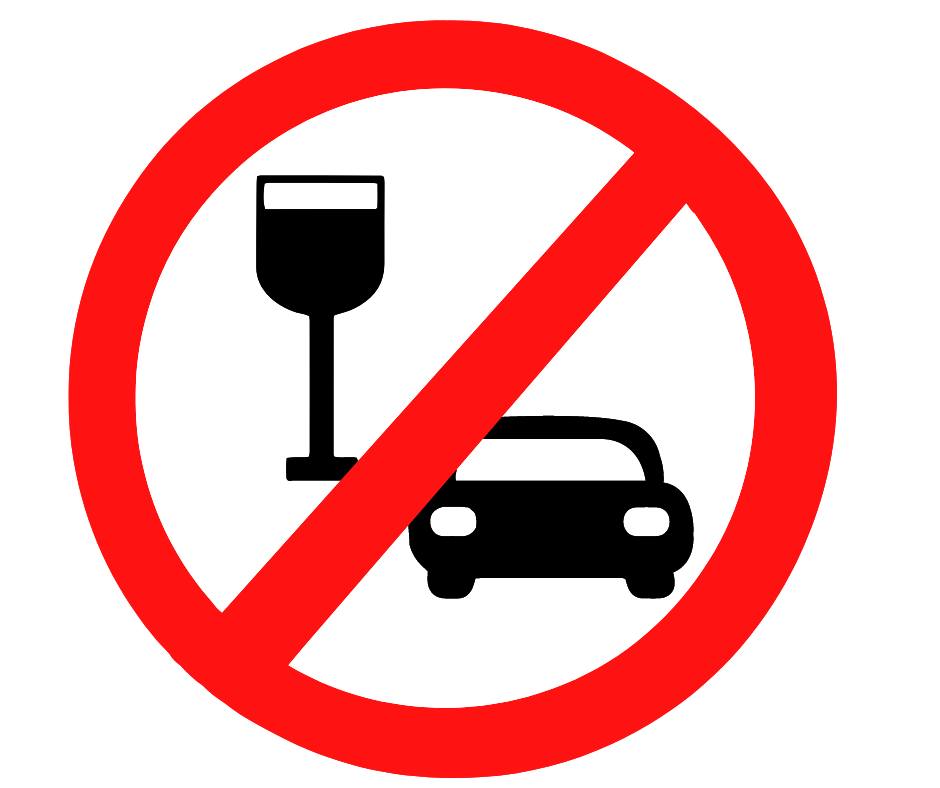Impairment
Alcohol
Alcohol severely affect reaction times, information processing, and perception, and are a major factor in crashes on our roads. If you are in any doubt at all about being safe or legal to drive after drinking, don’t – it’s not worth it.
The alcohol limit for drivers for drivers aged under 20 is zero.
If you are aged 20 and over the limit is 250 micrograms of alcohol per litre of breath (mcg) / 50 milligrams of alcohol per 100 millilitres of blood (mg).
The law says you must not drive if the amount of alcohol in your blood or breath exceeds these limits.

The number of alcoholic drinks you can have before you reach these limits depends on many factors, including whether you are male or female, your size and how much food you have eaten.
Even small amounts of alcohol can affect your driving, so if you drink at all, don’t drive.
- Think ahead - it’s always easier if you have a plan.
- Call a taxi or ride share.
- Take a bus or get someone who hasn’t been drinking to drive you home.
For more information, visit the NZTA website.
Illegal Drugs
Drugs are present in nearly a third of all fatal crashes on New Zealand roads. This is when a driver in a fatal crash is found to have drugs in their blood. The most frequently found drugs in road deaths and serious injuries are cannabis and methamphetamine.
Drugs affect how you take in and process information, they can slow down your reaction times, increase fatigue, and change perception of reality. Even if you feel in control, it's not safe for you to drive after you’ve taken drugs.
Police in New Zealand may conduct compulsory impairment tests (CITs) to assess a driver's condition, which can involve an eye assessment, a walk-and-turn assessment, and a one-leg stand test. Roadside drug testing will also be rolled out across the country soon.
The consequences of driving after taking drugs are serious and extend beyond losing your licence. It also can include criminal convictions, fines, job loss, and travel restrictions, as well as causing harm or fatality to other road users.
Prescription Medicine and Over-the-counter Drugs
Many medications, both prescription and over-the-counter, can cause dizziness, drowsiness, confusion, and other side effects that impair driving. Medications for anxiety and depression, nausea, allergies, epilepsy and heart conditions are likely to cause impairment, as are sleeping pills, strong painkillers, addiction treatments and anti-psychotics.
If you are prescribed a new medicine, talk to your GP or pharmacist about the likely impacts on driving. Never drink alcohol or take any illegal drugs with any of these medicines as the impairment effect can be up to 25 times greater by "mixing". Find out more about the risk of mixing substances on the NZTA website.
In the first 24-48 hours after taking a new medicine, or increasing the dosage of an existing medicine, monitor yourself closely for the following symptoms:
- feeling drowsy or sleepy
- dizziness or blurred vision
- headache
- feeling weak
- slowed reactions
- feeling sick or nauseous
- being easily confused or unable to focus or pay attention
- slurred speech or have trouble forming a sentence
- feeling wired and overconfident (those around you might notice this first).
If you experience these symptoms of impairment, don’t drive.
Fatigue
Lack of sleep, long shifts, and night duties can cause fatigue, which impairs decision-making and can lead to dangerous micro-sleeps while driving.
To avoid driver fatigue, share driving with another licensed driver, or take a 15-minute rest break or sleep every 2 hours.
Drowsy-driving myths:
False. Caffeine and energy drinks are a stimulant, so after about 20 to 30 minutes, you may feel more awake or alert for a short time. However, you will still have impaired judgment and slowed reflexes and may experience microsleeps. These dangerous short sleep blinks, lasting approximately four seconds, are when people nod off without realizing it.
If you are traveling at 100 kilometres per hour, a 4-second microsleep would have you travel a distance of 111 metres or more effectively blind or with your eyes closed. During that time, you could drift into oncoming traffic or hit a pedestrian.
False. Just like you don't know the exact moment you will fall asleep when you are in bed, you cannot accurately predict this. Any attempt to guess is playing Russian roulette with your life and the lives of others.
False. Younger adults and teens actually need more sleep than older drivers, not less. Teens, especially, need on average, nine or more hours of sleep per night for optimal functioning. In short, younger drivers are as vulnerable as older drivers to falling asleep at the wheel, especially as they may be more inexperienced drivers and be less likely to adequately assess risk due to their brains not being fully developed.
False. Playing loud music may or getting fresh air may jar you a little, however, it will not make you safe to remain on the road. If you are struggling this hard to stay awake, your judgement and ability to drive safely is already grossly impaired. This is a sign to pull over and take a short nap immediately.
No, sugar will not help you stay awake while driving tired. It will only provide a brief, temporary energy boost followed by a crash in fatigue and mental fogginess, which is dangerous when driving. Instead, make sure you get a good night's sleep before travel, taking breaks every two hours, and consume healthier road trip snacks with protein, fibre, and complex carbohydrates to maintain more stable energy levels.
